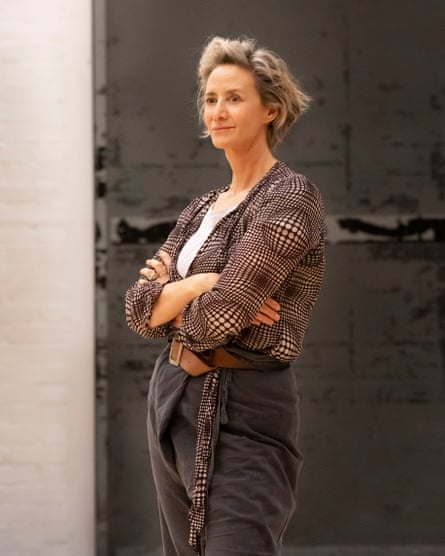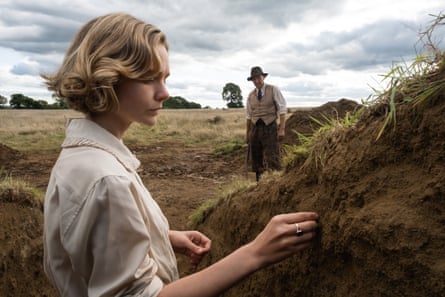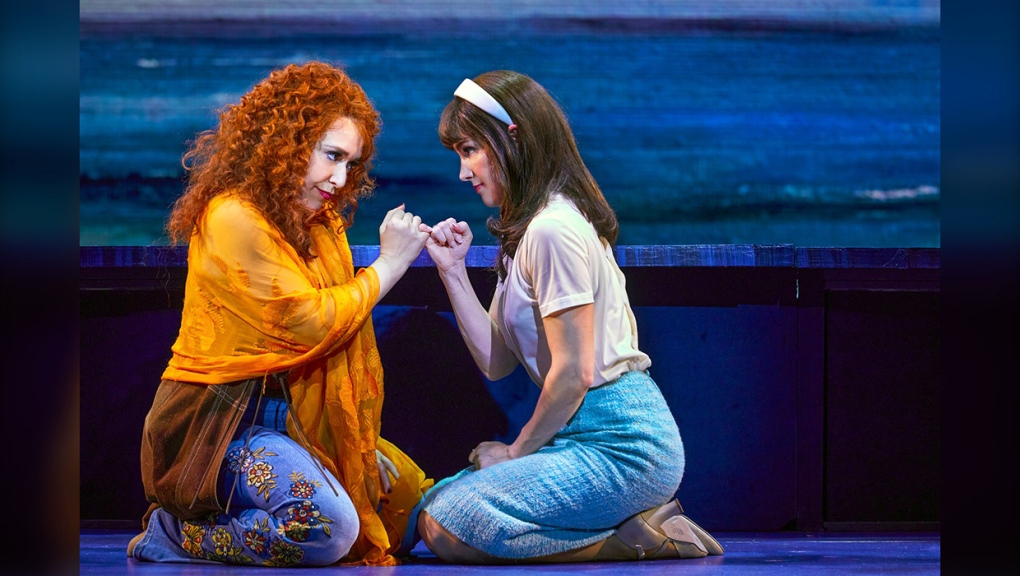Director Simon Stone: ‘My heroes are women’ | Theatre

Simon Stone does matters in another way. As a young director he was described as the enfant awful of Australian theatre. He’s 38 many years outdated now so no lengthier an “enfant”, though his track record has spread much over and above Australia and outside of theatre, far too, into film and opera. But a several times right before interviewing him, I overhear two associates of his hottest ensemble talking about how disconcerting it is to do the job with him. They’ve not knowledgeable just about anything like it, they say. They are under no circumstances rather sure when rehearsals will commence, since he spends each individual morning creating that day’s scenes.
Can this seriously be any a lot more than an excuse for getting a long-term oversleeper, I request, when we meet immediately after his sixth working day of rehearsals for his edition of Phaedra at the National Theatre. He laughs and suggests that this pretty morning he was up early writing with his 5-month-old daughter on his knee. “And she retained just form of typing, with me possessing to correct the typos that she was making.” The level, he provides, is not to put actors on the spot, but to help them to collaborate in the development of the textual content from working day to working day as a result of their improvisations in the rehearsal space.
It’s not that he’s creating a new participate in, but as any individual blessed ample to have witnessed his electrifying production of Yerma in 2016 will inform you, his inventory in trade is to so thoroughly reconceive aged ones that he could as well be. For Yerma, at the Youthful Vic, he teamed up with the actor Billie Piper to existing Lorca’s Andalucian peasant female as a fashionable woman pushed mad by her incapability to conceive, inspite of a number of rounds of IVF. Two years previously at Ivo van Hove’s Internationaal Theater Amsterdam, he reimagined Medea as a biochemist with two little ones and a dishonest spouse who not has only deserted her for a youthful female but has taken credit history for all of her investigation.

So what will he do with Janet McTeer as Phaedra, the Cretan princess who was married to Theseus and whose tragedy was to tumble in like with her stepson Hippolytus? It is a myth that drops like a plumb line by way of millennia, from Sophocles and Euripides in ancient Greece, to Seneca in Rome, Racine in 17th-century France and any variety of 20th-century interpreters, each individual of whom have introduced the preoccupations of their very own times and places to bear on it.
Stone will use it to pull aside the invisibility cloak that enfolds females as they slide in the direction of the menopause, in one of the fantastic cultural injustices of the modern day age. “I’ve spent a lot of time conversing to and reflecting on postmenopausal girls who come to feel eradicated,” he says. “They realise they’re not being observed any much more, and that their sexuality has been deleted from the community eye. There have, of training course, been all sorts of hormonal variations, but their sexuality doesn’t really feel like it has diminished, and in some scenarios it is elevated. But that feels incredibly at odds with the way we chat about potency. And that phrase in by itself has implications of reproductivity in it, so in some ways it cannot even be applied metaphorically to a woman who is no lengthier able of replica.”

Isn’t it astonishing, he provides, that even in the present day entire world the sexual narrative is even now by some means connected to heterosexual replica. “But of program, replica is inherently heterosexual, in its cliched, aged-fashioned connotation. So it all results in being quite heteronormative and incredibly, pretty patriarchal, just in the informal way that that entire world talks about and represents and celebrates sexuality in 50-additionally gals.”
Talking to Stone is an strange mixture of drought and tsunami. He thinks intently, looks pained, and then launches into floods of believed that have obviously burst up from some deep portion of himself. Ever considering that he directed his first perform as a 22-year-aged actor, he has been drawn to the stories of females, he suggests. “I imagine if I have been to analyse myself I would say that a whole lot of it is linked to sensation that I can affiliate emotionally and rationally with the feminine aspect of my imagination substantially much more than I do with the male aspect of my character.”
He’s mindful that in the existing culture wars around gender and patriarchal oppression, this is contested territory. “I have long hair but I also have a enormous beard and I’m in a heterosexual partnership. It is truly challenging to chat about because it’s these types of a sensitive matter for so several persons for different distinctive explanations. But my heroes are females. And when you are composing plays with heroes in them, you want to be ready to publish one that you seriously regard and admire. I locate that easier to do with ladies than I do with males.”
Just one end result of this, he admits, is that “my adult men are quite attenuated. If you studied all of my performs, you would constantly see a male who is unresolved, underdeveloped and unfinished, who doesn’t have the paradoxical nuance that his feminine counterpart has, because which is my working experience of masculinity: it is attenuated.”
He has occur to the summary that he suffers from gender dyslexia. “I typically introduce ladies as him and adult men as her, and I employed to sense ashamed by it.” In a bid to demonstrate the origins of this, he tracks again to an early childhood encounter in Switzerland, where by he was born, just one of three kids, to a biochemist father and a veterinary scientist mom. He was about 5 a long time old, and trailing up the stairs of their condominium block guiding his two sisters, when a boy who lived downstairs questioned what he was accomplishing with a doll. ”I seemed down and realised that the boys in the playground did not enjoy with dolls, but in my family members all three of us experienced one of our own.”
When he was 12, his father died out of the blue, leaving him in a household of girls. The only two guys he could stand to be all around ended up a gay uncle and his companion, and as a teenager in Australia he arrived out as homosexual himself, “because I imagined that was the only way that I could be a guy and be as tender, effeminate, expressive, open, carefree as I required to be”.
Inconveniently, he stored possessing goals about girls. Ultimately, he says, he had to occur out as straight to his homosexual good friends, which was uncomfortable in case they assumed he experienced been faking it, but luckily they comprehended, simply because “let’s deal with it, not a whole lot of guys in Australia in the 1990s would pick to be gay”.
His confusion over his sexuality did not extend to his sense of vocation, which was distinct and pushed from an early age. By his teens he browse plays voraciously, at a fee of 4 or 5 a 7 days by 15 he experienced identified himself an agent, and by 16 was earning good dollars as an actor in Television collection and commercials. Drama university, he claims, taught him how to behave like a guy. “They need to have adult men to engage in male roles, so I sort of took on the physicality that I have these days.” But, far from sorting him out, the transformation created him “incredibly boring for about 5 many years. Like, truly, definitely boring. I grew to become just one-dimensional and constricted, judging myself ahead of I said everything in circumstance it would occur across as camp or, you know, as the individual that I really want to be.”

At 22, his annoyance at the type of acting roles he was getting presented led him to try out his hand at directing, and he established up his own company theatre company in Melbourne, the Hayloft Challenge, launching it with a output of Frank Wedekind’s Spring Awakening, and working his way by means of a European repertoire that bundled Chekhov, Ibsen and Nikolai Erdman. Simultaneously, Stone states, “through my 20s I was figuring out how to just be me”.
By his early 30s he had arrived where he wanted to be – back again in Europe, as a standard director at Theater Basel, in the city in which he was born. He built his film directing debut in 2015 with The Daughter, centered on Ibsen’s tragedy The Wild Duck, which had develop into his worldwide contacting card when he directed a phase edition at Sydney’s Belvoir Avenue theatre. He went on to make The Dig (2021), starring Carey Mulligan as the landowner whose perseverance led to the excavation of an Anglo-Saxon ship burial at Sutton Hoo.
For the past eight a long time, Stone has been centered in Vienna with his dramaturg spouse, Stefanie Hackl, but the pair have lately moved to London with their toddler daughter. “I had to maintain leaving residence to be the place I labored. And then I realised that the one particular location in the world wherever I most likely wouldn’t have to leave dwelling very significantly is London, because movie, theatre and opera are all in the same place.”
In April he will make his Covent Back garden debut with a new opera, Innocence, by the Finnish composer Kaija Saariaho, about a faculty taking pictures, which premiered at the Aix-en-Provence pageant in 2021. “‘It’s my opera version of The Lion King. It’s likely everywhere you go in the environment,” he suggests. It prolonged his collaborative observe into an evolving musical get the job done. “When I commenced doing work on the venture there was just a libretto, and I hadn’t read any of it by the time I built it. Kaija saw the style and then retained producing this miraculous new music.”
But very first arrives Phaedra, a tantalising glimpse of which is supplied by a steamy teaser featuring McTeer and Assaad Bouab as variations of Phaedra and Hippolytus. “I was so interested in the strategy of a girl who falls in really like with a young male and discovers her drive once more – the excitement and rush of these a reduction of management, and the plan that you could have a next probability in existence,” says Stone. “Of class it is a mad act of amour fou, but like all of the Greek myths it is an exorcism of the self-destructive likely in all of us.”







